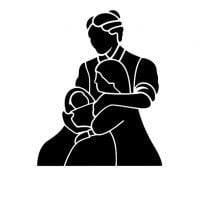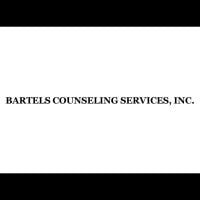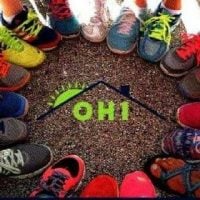Childrens Home Society - Residential Treatment
Drug Rehab Center in Sioux Falls, South Dakota
The Childrens Home Society - Residential Treatment is a renowned facility in Sioux Falls, South Dakota with over 125 years of experience providing comprehensive addiction treatment and mental health services tailored to the individual needs of each patient, including inpatient, outpatient and residential care options, as well as accepting private health insurance.
About Childrens Home Society - Residential Treatment in South Dakota
Childrens Home Society - Residential Treatment is an addiction treatment facility located in Sioux Falls, South Dakota. Founded in 1893, this longstanding institution has been providing comprehensive care and intervention for individuals suffering from drug addiction, alcoholism, dual diagnosis, and mental health issues. With a range of treatment options available, including inpatient, outpatient, and residential levels of care, Childrens Home Society aims to address the unique needs of each individual and provide them with the support and guidance they need to achieve lasting recovery.
Childrens Home Society - Residential Treatment offers a wide range of services to assist individuals struggling with addiction and substance abuse. Through a combination of therapy, counseling, and evidence-based treatment methods, they strive to help individuals develop essential coping skills while addressing underlying trauma or mental health concerns. Some of the services provided include individual counseling sessions to explore causes and contributing factors of addiction, group therapy sessions for peer support and camaraderie, family therapy sessions to promote healing within relationships impacted by substance abuse. Additionally, Childrens Home Society employs various treatment methods such as cognitive behavioral therapy (CBT), dialectical behavior therapy (DBT), and holistic approaches that focus on overall wellness.
Genders
Ages
Modality
Additional
Conditions and Issues Treated
Levels of Care Offered
This center offers a variety of custom treatment tailored to individual recovery. Currently available are Inpatient, Outpatient, Residential, with additional therapies available as listed below.
Inpatient treatment is a form of recovery used in drug rehab. Inpatient recovery offers individual therapy, groups, and family therapy to ensure that the addict has the best recovery possible. A variety of treatments are provided in this type of recovery, depending on what treatment the addict needs at that particular time.
The length of inpatient addiction treatment depends on the addict and their addiction. Inpatient rehabilitation can last anywhere from 30 days to 90 days, depending on how severe the drug abuse is. Inpatient rehab is a costly drug treatment, costing anywhere from $30k- to $60k. However, insurance often offers help in covering these costs.
Alcohol or drug addiction, or co-occurring disorders, are treated in an outpatient program. The patient must attend therapy and other programs at the facility but can return home each night.
Outpatient treatment allows recovering addicts to live at home while receiving addiction treatment. Outpatients can attend group sessions for a few hours per week. Outpatients may also continue to work full time and study/attend school without interruption if they choose.
Residential treatment programs are those that offer housing and meals in addition to substance abuse treatment. Rehab facilities that offer residential treatment allow patients to focus solely on recovery, in an environment totally separate from their lives. Some rehab centers specialize in short-term residential treatment (a few days to a week or two), while others solely provide treatment on a long-term basis (several weeks to months). Some offer both, and tailor treatment to the patient’s individual requirements.
Therapies & Programs
Different people react differently to various treatment options. Some drug rehabilitation centers offer individualized treatment that caters to the specific needs of a drug addict. The best treatment option varies on an individual depending on the type of drug abused, life history, medical condition of the person, social circumstances, and the environment they live in now.
When a person enters drug rehab, they usually have anti-drug associations such as withdrawal symptoms, stress, cravings, etc. The first step of drug rehab is to detoxify the body from any residual substances in it. Drug rehabilitation centers usually employ trained medical professionals to help in this process. Usually, the initial detoxification lasts for five days, where the person is monitored under close supervision.
Family therapy sessions typically involve the addict and their family members. During these sessions, a therapist will work with everyone involved to help them understand addiction and find healthy ways of coping without substance abuse.
Some addicts might feel embarrassed about their substance abuse problems. By encouraging family members to attend these sessions, therapists can show addicts that they’re not alone in dealing with addiction. Therapists can also work with family members to help them understand addiction and learn how to offer support and encouragement to their loved one as they deal with substance abuse issues.
Attending group therapy at Childrens Home Society - Residential Treatment in , is a useful way for those seeking sobriety to realize they aren’t the only one going through it.
This is when a group of people on different recovery phases get together and talk about what they’re going through, their triggers, successes, and failures. This can include alternative types of therapies too! Group therapy may occur on an outpatient or inpatient basis with groups that have no pre-existing relationships outside the session, unlike support groups where everyone already knows each other beforehand.
Trauma therapy is a form of therapy used to help people process and understand past traumas. This can help struggling addicts, as many people turn to drugs or alcohol to mask the pain of their past. Trauma therapy can be done in several ways, such as through visualization, discussion, and writing down thoughts and feelings. The goal is to help the individual understand why they are having problems coping with certain situations and changing how they think and react to things. This is often done in tandem with other therapies to treat the underlying issues associated with addiction.
The idea behind trauma therapy is that while some people can experience traumatic events and not have lasting psychiatric symptoms, many others will. In these cases, memories get hidden from consciousness but continue to influence how the person processes and copes with things in their life. They may avoid situations that resemble what happened or become suddenly angry or irritated to a situation that reminds them of a past event. With the help of a therapist, people can go back over memories and experiences. This helps them understand why they are having problems coping with certain situations and changing how they think and react to things.
Cognitive Behavioral Therapy is a type of psychotherapy that helps people address the thoughts and behaviors that may have led to their addiction. It also helps change negative thoughts into positive ones and promotes healthy communication between addicts and those around them. CBT is an efficient treatment for individuals suffering from all sorts of addictions.
Cognitive Behavioral Therapy (CBT) focuses on the underlying thoughts and behaviors that caused the problem of addiction in the first place and may cause a relapse. Negative feelings are common in drug abuse disorders, but they can lead to co-occurring disorders if not recognized. CBT involves strategies that help to change the behavior pattern by restructuring negative thoughts into positive ones. It helps to remove these feelings, and it provides long-term benefits. Also, CBT promotes self-awareness, self-control and can be administered as a mono-therapy or as part of combination therapy.
Good nutrition can be difficult for people recovering from addiction because they may not feel like eating while they are experiencing the physical and emotional side effects of detoxing.
Nutrition therapy can help addicts in the following ways:
- Helps individuals to understand which foods promote good health and support recovery that will assist them during detox
- Provides guidance and education about how to maintain a nutritious diet so they can stay healthy during recovery
- Improves their overall health and well-being, which can reduce the severity of substance withdrawal symptoms.
Nicotine replacement therapy is a popular method of treatment that helps individuals overcome their addiction to cigarettes by providing them with safer alternatives. Nicotine replacement options can include:
- Inhalers
- Gum
- Patches
These treatments are often used in combination with other therapies, such as cognitive behavioral therapy or motivational interviewing, to help individuals more easily transition into a smoking-free lifestyle.
Patient Experience
Experiential Therapy at Childrens Home Society - Residential Treatment
Experiential therapy is a type of therapeutic approach that focuses on having patients work through problems, issues, or emotions by engaging directly in some real experience. It occurs face-to-face with a therapist who helps these people to explore their feelings first hand. The hope is that when this happens, the patient will feel driven to turn away from their destructive behavior and instead take up positive behaviors or coping mechanisms. Direct experience methods, role play, psychodrama, interpersonal and social learning are a few different forms of experiential therapy.
Payment Options Accepted
For specific insurance or payment methods please contact us.
Is your insurance accepted?
Ask an expert, call (888) 674-0062
Childrens Home Society – South Dakota Associated Centers
Discover treatment facilities under the same provider.
- Northeastern Mental Health Center - Aberdeen in Aberdeen, SD
- Northeastern Mental Health Center - Webster in Webster, SD
- Childrens Home Society - Black Hills Childrens Home in Rapid City, SD
- Childrens Home Society - Loving School in Sioux Falls, SD
- Northeastern Mental Health Center - Redfield in Redfield, SD
Learn More About Childrens Home Society – South Dakota Centers
Additional Details
Specifics, location, and helpful extra information.
Sioux Falls, South Dakota 57103 Phone Number(605) 334-6004 Meta DetailsUpdated November 25, 2023
Staff Verified
Childrens Home Society - Residential Treatment Patient Reviews
There are no reviews yet. Be the first one to write one.
Sioux Falls, South Dakota Addiction Information
Although South Dakota is a sparsely populated and somewhat isolated state, it is equally impacted by the national drug epidemic. Substance abuse remains a significant issue that leads to injuries and deaths every year. 17.27% of all deaths between 2008 and 2017 were drug and alcohol-related. Methamphetamines and alcohol are the most commonly abused drug of abuse for those entering treatment in South Dakota.
In Sioux Falls, South Dakota, the community has been greatly impacted by drug addiction and abuse. There were 598 admissions to treatment centers for drug and alcohol addiction in Sioux Falls in 2014. This amounts to a rate of 9.8 per 10,000 population. Most drug rehab programs in Sioux Falls will offer a variety of treatments, such as individual and group counseling, addiction education, aftercare planning, and relapse prevention.
Treatment in Nearby Cities
- Custer, SD (346.8 mi.)
- Chamberlain, SD (134.1 mi.)
- Rosebud, SD (211.3 mi.)
- Aberdeen, SD (159.4 mi.)
- Redfield, SD (129.2 mi.)
Centers near Childrens Home Society - Residential Treatment
The facility name, logo and brand are the property and registered trademarks of Childrens Home Society - Residential Treatment, and are being used for identification and informational purposes only. Use of these names, logos and brands shall not imply endorsement. RehabNow.org is not affiliated with or sponsored by Childrens Home Society - Residential Treatment.




